YOU never forget your first time.
For me, it was 1989.
I was 13 and had big permed hair and a big teen attitude and was living in the big old state of Texas.
Suddenly, from our brown shag-carpeted lounge room I heard the strains of an Aussie accent, singing: “Dingo-ohh …”
What the …?
That was my introduction to John Williamson.
My homesick Australian parents had been sent a CD by the True Blue crooner, and three decades later I still can’t get that song out of my head.
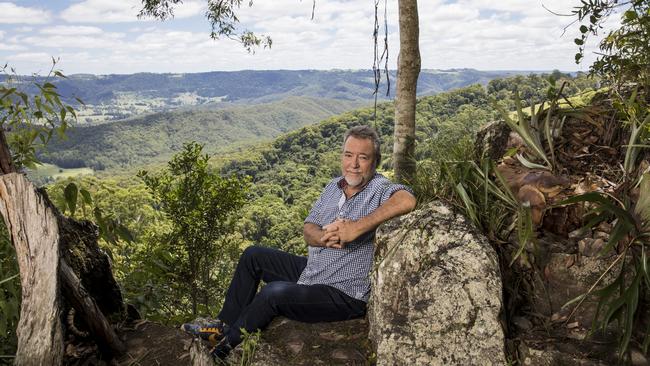
Almost every Australian I’ve met can tell you when and where they first heard the fair dinkum folk singer.
I may be only a half-breed, but there is something about the landscape and wildlife of this country that haunts every Australian, whether or not we’ve ever been out bush.
Perhaps that’s the appeal of 73-year-old singer/songwriter Williamson, now in his 48th year of performing.
Given he’s about to release a new album next month, his 20th, you could be tempted to think that age shall not weary him.
But he’s having none of it.
GET A NEW SET OF HEADPHONES WITH YOUR DIGITAL SUBSCRIPTION
“I’ve been out to lunch all day with John Laws,” he says, yawning. He doesn’t mention it, but Laws regularly refers to Williamson as his “little brother”.
“They (his management) weren’t meant to tell you but I had to come home and go to sleep. John can talk, you know.”
Well, that explains why our interview is occurring 10 hours after it was scheduled. Not only is Williamson on country time, but mates come first — not to mention long lunches.
How Aussie is that?
But it reminds me too just how high-profile Williamson is. Even though he really doesn’t care.
Nevermind the charts, he continues to be at the forefront of significant events in Australia,
presenting the voice of our country when it is needed most.
ANN WASON MOORE: THE TRAVERS ‘CANDYMAN’ BEYNON INTERVIEW
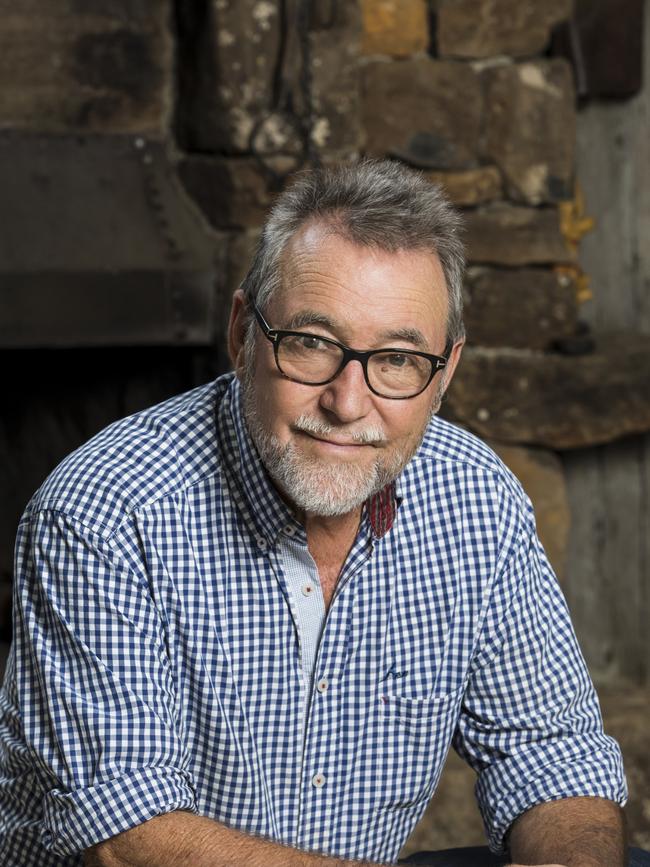
He’s brought gravitas and poignancy to events which capture our hearts, whether the Gold Coast Commonwealth Games, the 2000 Sydney Olympics, Steve Irwin’s memorial, Sir Donald Bradman’s memorial, the Rugby World Cup or the first Bali bombings memorial service.
And yet, every April 25 you’ll find him down on Currumbin beach, singing to the thousands who come out for the Anzac Day dawn service.
Because — and this is the other thing you forget — the Gold Coast is his home. High in the Hinterland hills of Springbrook lives one of our greatest treasures.
But the original true blue is worried we’re losing the green behind our gold.
“I grew up in Quambatook in Victoria’s Mallee country, but my folks always loved the Gold Coast back in the 1960s — and I was just delighted to go to a motel with a swimming pool,” he says.
“But it’s certainly not the same city anymore as it was then, although it’s still one of the greatest beaches in the world.
“I’ve been here a long time now. I bought those 10 acres up in Springbrook way back in 1976, although we didn’t get around to building the cottage until about 10 years later. Of course, it was Albert Shire back then, now we’re officially part of the Gold Coast. I didn’t ask for that.
ANN WASON MOORE: ZARRAFFA’S BOSS KENTON CAMPBELL INTERVIEW
“I’m not knocking the Coast. It’s big and it’s dynamic but I think we’ve lost control of it now.
“It just grew too big too fast and now we have all of the big city problems like traffic and high prices but without the big city infrastructure.
“We need to slow it down but that’s up to the council and that’s just not going to happen.
“Residents have lost control, we have no control over what’s happening to our city. We need to stand up for ourselves before we lose the very things that make us so special.
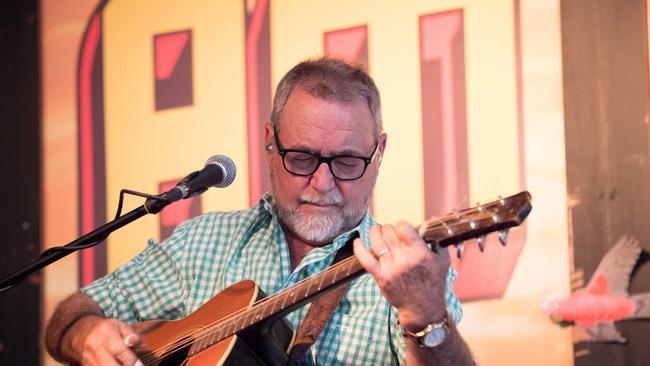
“The shadow of development is literally ruining the beaches. It’s almost as bad as Sydney. We need to look forward to our future, not just be obsessed with how to make a quick quid.”
For an artist who has been outspokenly supportive about, among other issues, gay marriage, republicanism and conservationism, Williamson regularly reminds me — or is he reminding himself? — that he doesn’t want to be political.
Fair enough.
After all, he’s seen how that can work against you.
“Peter Garrett should have just stuck with Midnight Oil, stuck with the band — not the political party,” he says.
“I’ve been asked to be involved from the Nationals to the Greens to be a member. As soon as you join any kind of party you gain enemies. And I always think that the power of one is much more sincere.
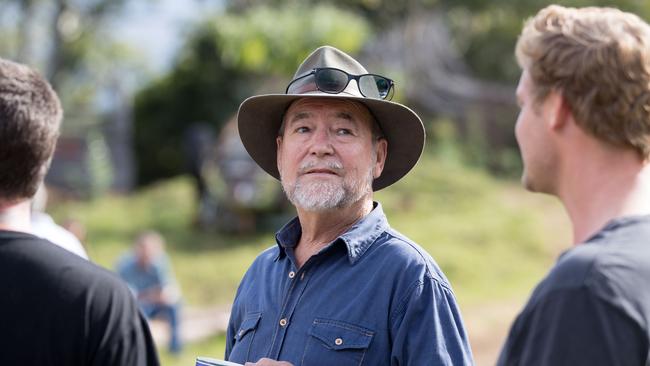
“I’d lose half my fan base in a minute and have to hold up ideals that are not my own.”
Williamson is nothing if not sincere. He believes in national pride, but struggles with the definition of nationalism.
He supports immigration, but also believes our greatest strength is our borders — “our moat” as John Laws described it to him at that long lunch.
“It’s a difficult time at the moment because you have these jingoistic movements in countries like the US, France and England. I believe in a peaceful patriotism,” he says.
“I do believe that the fact that we are girt by sea is one of our best assets. Some say that it makes us isolated, but I think it just keeps our secret safe.
“That’s not saying I want to keep others out. I welcome and embrace all people — we just have to make sure we look after our country, that we care for our backyard.
“Actually, I filmed a piece for Anh Do’s Brush With Fame program and I told him that I think he is true blue. He was quite tickled by that, but it’s true. He’s absolutely an Aussie.
“For me anyone can become true blue if they love this country like I do. It’s not nationalistic, it’s just being proud of what we’ve got and respecting it.”
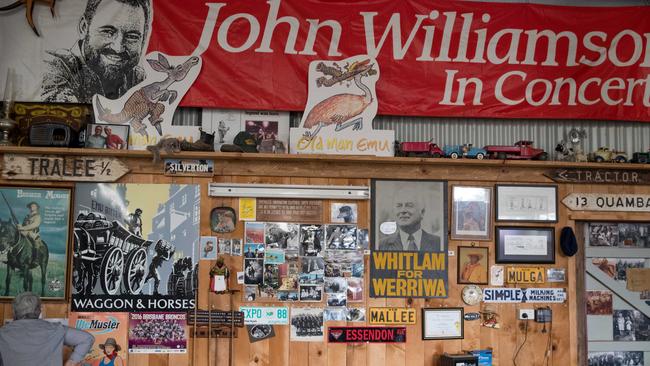
Country is king for Williamson, especially when it comes to his music.
Despite fans from all over the world, he only has eyes for the ears of the Aussies.
“I never aimed at being an international star,” he says.
“Why bother? I do just fine here … how much money do you need?
“It’s great that Keith Urban has made the big time, but that was never the path for me.
“One of my dreams was to be loved in Australia like Willie Nelson is loved in America, but never to compete in America.
“I’d rather be a hero in my own country than anything else. Except maybe a Wallaby.”
The position of Aussie hero is one that has been left vacant since Williamson’s own idol, Rolf Harris, fell hard and horribly from grace.
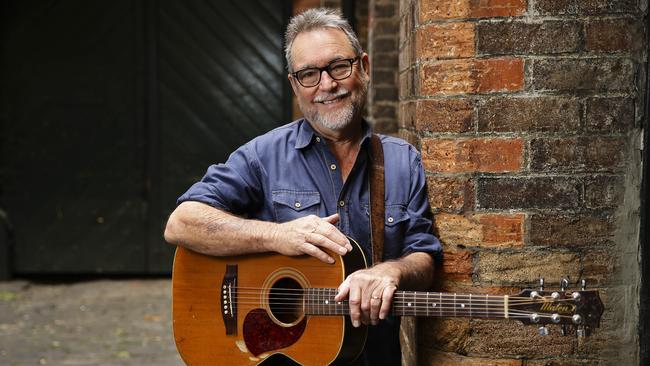
The career of the iconic artist behind Tie Me Kangaroo Down, Sport and Jake the Peg ended when he was convicted and imprisoned for sexual offences. In 2014, at the age of 84, he was jailed for five years and 9 months on 12 counts of indecent assaults on four teenage female victims during the 1970s and 1980s.
Following his conviction, he was stripped of many of his honours, including the AO and CBE.
Williamson, himself a Member of the Order of Australia, says it was one of the greatest disappointments of his life.
“It was heartbreaking, it was awful,” he says.
“I was so inspired by him. He was the first artist to embrace being Australian — he sang with the accent that I have. We’d never heard anyone do that before.
“I still believe in his music … but not his character. That’s gone forever now, isn’t it?”
Williamson is not volunteering for the role of new national hero, but it’s one he’s likely to assume, regardless.
Along his journey he has been inducted into the prestigious ARIA Hall of Fame, secured
three ARIA Awards, 26 Golden Guitars, MO Awards, three APRA Awards, platinum and gold
albums and sold more than four million albums.
Beginning with the release of the classic Old Man Emu in 1970, which went to number one for five weeks, he has continued to create hits including True Blue, Cootamundra wattle, Rip Rip Woodchip and Clouds Over Tamworth.
And, if Williamson has his way, Old Man Emu is where it will end in 2020.
“Every year, on the anniversary of Old Man Emu’s release, I have a big party at our Springbrook house,” he says.
“Fans can buy tickets and the proceeds go to charity. We love it.
“We just had the 48th birthday for Old Man Emu. And I think I might call it a day on his 50th.
“I’m getting old, I’m finding what I want to do these days is potter around in the garden up at Springbrook.
“In fact, that’s where the new album title came from, Butcherbird. They’re a resilient bird, always digging around for the worms while I’m digging in the dirt.”
Williamson is worried, however, that the environment surrounding his beloved birds is not so hardy.
As drought grips much of the country, he says our own Hinterland is at risk too.
“Things are really dry up here right now.
“The waterfalls are a trickle and if we’re not careful we’re going to see some bushfires. It does worry me.”
While the world might stimulate anxiety, his work does not.
In fact, Williamson says he couldn’t be more laid-back about his career — or whatever is left of it.
GET A NEW SET OF HEADPHONES WITH YOUR DIGITAL SUBSCRIPTION
“I have to admit that I’m interested to see what the new album will do. I don’t think I’ve ever been so relaxed when recording. I don’t have anything to prove, my runs are on the board. This is for me — and the fans.
“Sometimes I do look back and think that it’s incredible that I’ve come as far as I have, but not often.
“Mostly I just look out at the audience and I’m happy to see such a mix of ages and faces out there.
“My kind of music isn’t made much anymore. It’s about the land and our people and our country, it makes you feel love for your family of Australians. Of course, I like to throw a ‘bum’ or ‘shit’ in there every now and then for the kids. They love it.
“I like to say that I have recycled fans. All those kids who heard their parents listen to me, they’re back again with their own kids.”
Just like that frizzy-haired girl back in 1989.
And that reminds me of my own children … fair dinkum, it’s time to dig out the old Dingo.

Add your comment to this story
To join the conversation, please log in. Don't have an account? Register
Join the conversation, you are commenting as Logout
Sharks unveil huge new stadium, $500m mega development
Southport Sharks has unveiled plans for a near-21,000-seat stadium and three residential towers in a massive redevelopment that could reshape the Gold Coast's sporting landscape.
Revealed: All Coast’s options for solving gridlock nightmare
The Gold Coast's population will surge by 350,000 in two decades, but the city's transport blueprint remains in limbo after light rail's dramatic cancellation. FIND OUT MORE